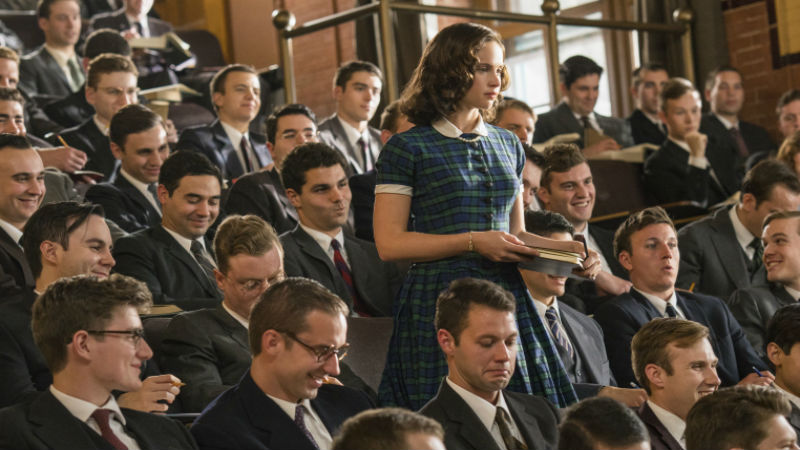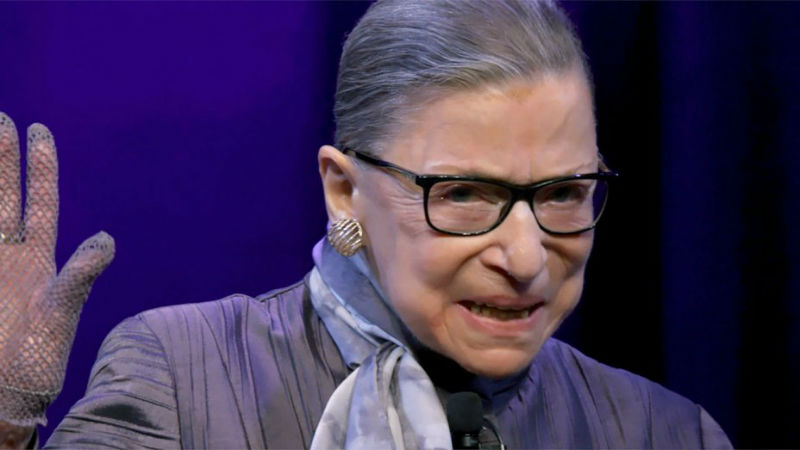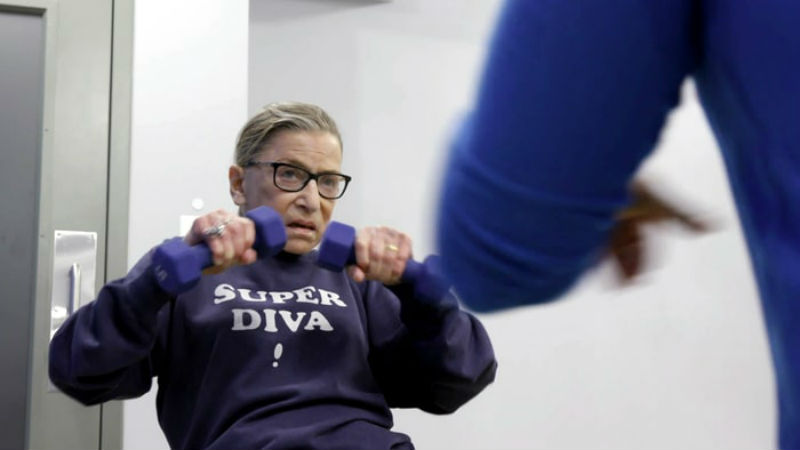It’s 1956 and Ruth Bader Ginsburg (Felicity Jones) is one of the nine female students at Harvard Law School. In this suited and booted world of more than 500 male students, a dress raises many eyebrows. Ruth has to carry the heavy burden of the proof of competence. It’s as if she bore the weight of every single American female on her shoulders. The sex discrimination isn’t subtle. The dean Erwin Griswold asks her and the other females: “what made you decide to take a place that could have gone to a male student?”
Parallel to her studies, Ruth has to look after her young daughter Jane and her ailing husband Marty (the heartthrob Armie Hammer, who bears very little physical resemblance with the real-life Marty), who had been diagnosed with cancer. She also takes classes on behalf of her husband (he’s also a law student). Miraculously, Marty survives and both of them graduate in law, having transferred to Columbia University at the end of their studies.

We than move to 1970. The remaining three quarters of the film focus on the landmark Charles Maritz case, a Denver man denied caregiver tax reduction for looking after his mother because he of his sex (the word “gender” wasn’t widely used back then, hence the film title). Ruth decides to embrace the seemingly dead-in-the-water case because she believes that by fighting gender discrimination on behalf of a man she would set a precedent for both sexes, and achieve a milestone in the history of gender equality and women’s rights. Back then, discrimination on the basis of sex wasn’t just legal, it was also normative. We soon learn that nearly 200 laws across the country were constructed upon gender bias.
From now on, you can work out the rest. Underdog that no one takes seriously embraces an impossible cause and makes history, against all odds. Almost everyone discourages Ruth, including her closest associates and male peers at the American Civil Rights Union. Even the notorious feminist judge Dorothy Kenyon dismissed her cause. Her old Harvard dean resurfaces and he is particularly offensive, and committed to upholding the conservative legacy of justice. Only her husband and daughter believed that she could succeed.
The dialogues are very sharp and punchy, a real American law history masterclass. The debate becomes increasingly angry and sharp-tongued in the final quarter of the movie, when it becomes mostly a courtroom drama. Ruth fights the Moritz in the Supreme Court, the same institution to which Bill Clinton appointed her 23 years later, and where she still works to this date, aged 85.
On The Basis of Sex raises a lot of legal and philosophical questions. What should change first: minds or the law? Is there an equivalence between race and gender equality? How fast and how often should the justice system and the law be prepared to change? And perhaps more significantly: is gender discrimination ever justifiable? One of the Supreme Justice reminds Ruth: “the word ‘woman’ is not mentioned a single time in the American constitution”, to which she promptly replies: “nor is the word ‘freedom'”.

I do, however, harbour a few reservations about On The Basis of Sex. Firstly, the movie opens with a “This film was inspired by real events”. I find that a lame excuse for historical inaccuracy, and a very awkward device given that this is a biopic of a real person, and all the characters are identified by their real name. It’s the equivalent to saying: “this is based on a real story, but we have romanticised infused it with so much saccharine that at times it might be hardly recognisable”.
But this isn’t the biggest problem. My major concern is about the idolisation of a judge, be it a progressive or a liberal one, at least while they are still alive and active. The real Ruth appears at the end of the film walking up the steps of the Supreme Court like a monarch or a celebrity. Judges should remain solemn and away from the spotlight. Read my review of Oscar-nominated RBG (Betsy West/ Julie Cohen, 2019; still showing in selected cinemas and also available on VoD), where I explain in more detail exactly what I mean, and why I think that films like these two represent a sheer perversion of the justice system.
On the Basis of Sex is out in cinemas across the UK on Friday, February 22nd.










